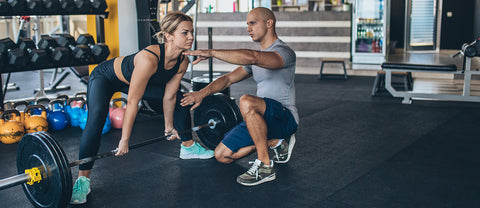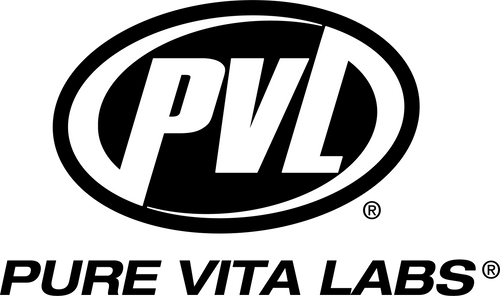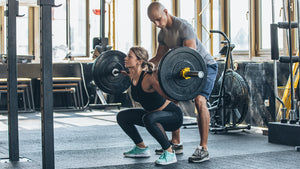In this article, we’ll do a deep dive comparing powerlifting vs. bodybuilding and walk you through a beginner powerlifting program so you can get started on your own powerlifting journey.
What Is Powerlifting?
In powerlifting, the idea is to become incredibly strong at three specific lifts: the barbell squat, the barbell bench press, and the barbell deadlift. The main goal of powerlifting as a strength sport is to lift maximal weight for a single rep of each lift and lift as much as possible for your weight, aka relative strength. You only need a barbell, a rack, and weight plates to train as a powerlifter.Heavy resistance training offers plenty of benefits. For one, powerlifting builds muscle and burns body fat. For another, the max weight builds strong bones, providing you with a resilient body for multiple athletic endeavors while reducing injury risk. And with squats, deadlifts, and bench presses being the three best compound movements, you work numerous muscle groups with a super simple training structure.
Powerlifter vs Bodybuilder
Bodybuilding is the art of improving your physique and aesthetics, while a powerlifter, in contrast, doesn’t necessarily care what they look like, so long as they are strong on the three lifts.
In terms of training style, a bodybuilder is looking for as much volume as possible, fatiguing the muscles so that they break down and build back better for maximal effect. On the other hand, a powerlifter trains the major three lifts – bench press, squat, deadlift – with high weight and low reps. Essentially, they train based on how they want to perform in competition.
Powerlifting is looking for strength in three specific movements. Bodybuilding is looking to use multiple movements to develop an overall body that looks great. One is a skill-based pursuit, and the other is more aesthetic.

The Ultimate Beginner Powerlifting Program
Seeing as the intention is to get better at barbell bench, barbell squat, and barbell deadlift, a beginner powerlifting program will revolve around those three exercises. You can do this one of two ways: Do all three exercises each time you train, three to four times a week, or work one of the three for three days in a row, repeated twice a week.Slowly work your way up for each lift to “working weight.” Do three, four, or even five warmup sets, adding plates with each effort until you exceed your PR range. As for working sets, you only need two or three heavy-weight sets of one to three reps.
For example, start with a squat that is just the barbell, doing 10-ish reps. Add one plate per side, rest for a few minutes, and do another 8-10 reps. Continue to add weight until you’re around your max. Rest as long as you need to get back to recovery, add five pounds, and do one or two reps. If you’re feeling fresh, do another set at or beyond your personal best.
This program is based a lot on feel. How you feel on a given day will dictate if you go beyond your limits or stay within a safer range. If one lift is lagging or one is not feeling tip-top, it might be a sign to engage in some accessory work. This will involve cable machine work to control the technical motions completely.
Here is the program in a nutshell:
- Barbell Bench Press: 3-5 warmup sets, 2-3 working sets
- Barbell Traditional Deadlift: 3-5 warmup sets, 2-3 working sets
- Barbell Squat: 3-5 warmup sets, 2-3 working sets (Note: rotate this order every time, starting with deadlift the next workout and squats the workout after that)
- Cable Machine Accessory Work: 2-3 sets each of 2-3 exercises (focus on form with mind-muscle connection)
Article by Terry Ramos


